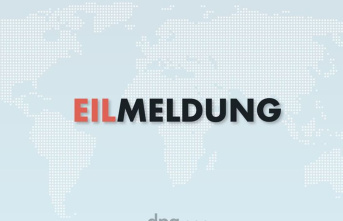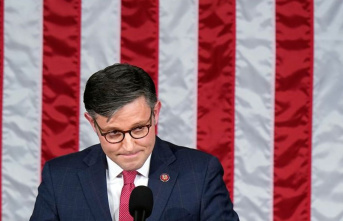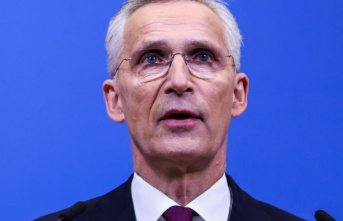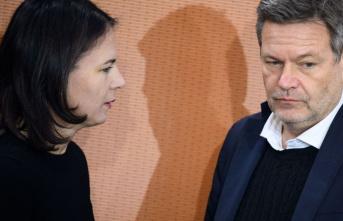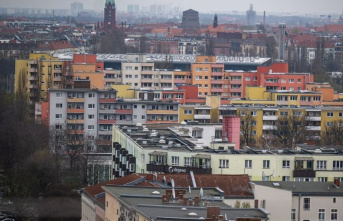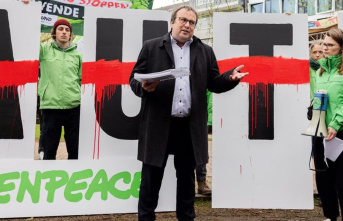Since time immemorial, the Nile is Egypt supplied with water. But the country of origin Ethiopia sees in the river is a means for the generation of electricity for the economic recovery of tomorrow. Now will be re-negotiated to the dam and running out of time.
Addis Ababa/Cairo (dpa) - Around 52.600 million cubic meters of water down to flow on average annually from the Ethiopian highlands of the Blue Nile. Ethiopia wants to let the floods in, in the future, the largest dam in Africa through a turbine to hunt.
For the country is the generated electricity is the key to economic development. However, for the Egypt river downstream of the dam is an existential threat. The year-long dispute between the two countries for the project has now reached a provisional climax.
In July, want to start Ethiopia to fill the reservoir of the Grand Ethiopian Renaissance Dam (GERD), with or without an agreement with the regional neighbors of Sudan and Egypt. The three States are currently sitting back at the negotiating table, and running out of time.
The importance of the Nile and the Renaissance dam is overestimated for the three countries is hardly. The desert state of Egypt covers up to 97 percent of its water needs from the Nile, which is already understood in ancient times as the "stream of life" and was honoured with a goddess called Anukis. Agriculture, industry and households are of the flow-dependent. Egypt's foreign Minister Samih Schukri had put it last September: "For Egypt, the Nile issue is a matter of life and death."
Many Egyptians also see on your page. Agreement at the time of the British colonial rule, and then issued in Cairo the right to most of the Nile water, and the Rest went to the Sudan, Ethiopia and other Nile countries were not taken into account. "Addis Ababa ignored the historical rights of Egypt on the Nile water," says Ruschdi Arunut, a 70-year-old farmer from the vicinity of Luxor. In the otherwise dry desert state of as Corn, rice and sugar cane as well as fruits and vegetables grow along the Nile.
Ethiopia but also in the right to use the power. Addis Ababa wants to urgently lift its approximately 110 million people out of poverty, and the country in the production centre of Africa to transform. However, there is a lack of power. Only about 45 percent of the population has, according to the world Bank access to electricity. Since built in 2011, 4.6 billion Dollar dam will generate up to 6450 megawatts of electricity and so to the heart of Ethiopia's modernization plans.
At the same time, the dam is a highly emotional and highly political project. For the Ethiopians it is a symbol of national pride and the independence of the state. It is financed entirely by the Ethiopian funds, at times, employees of state-owned enterprises had to give up a portion of their salary. And for the Prime Minister, Abiy Ahmed a lot on the game. The young head of the government has received recently the Nobel peace prize for peace efforts in the Region, but has to struggle with ethnic conflicts and political headwinds. He needs a successful completion of the dam project. Weakness to Egypt can not afford to Abiy.
The Sudan is between the chairs. After the military coup against President Omar al-Bashir in 2019, the country is still economically weak and fragile. The seasonal Nile Floods will be reduced by the dam in the Sudan, but. The regular flow of water will come from the agriculture to the benefit of, and Khartoum will be able to buy cheap electricity. However, should there be any problems with the GERD, will suffer first of all Sudan. Khartoum "sees a lot of advantages, but I would like to get assurances because of the risks," says William Davison of the think-tank International Crisis Group (ICG).
especially the Filling of the reservoir is controversial: The faster is filled, the less water comes down the river. At the beginning of the year, the three States were using the USA just before an agreement is reached, this burst but. "We will start next month to fill the reservoir, even if there is no agreement between the three countries," urged Ethiopia's foreign Minister, Gedu Andargachew in an interview with the German press Agency.
"We now have to achieve a short window of time in which there is a risk of increasing escalation, but also a renewed Chance of reaching agreement," says Davison. One of the last major sticking points is the question of how much water will leave Ethiopia in drought. Cairo wants to, in the case of dry periods with a guarantee that Addis Ababa gets to make up for the lack of water downstream. However, from the point of view of Ethiopia, Egypt has no claim on a certain share of the Nile water. The Egyptians want to "control everything", writes the foreign Minister, Gedu.
agreement, before Ethiopia begins to fill the reservoir, would be a victory with a lot of symbolic power for the Region. And cooperation is sorely needed. Because the Problem of water scarcity is likely to continue to increase: In Egypt, life in the year 2050 according to UN estimates 160 million people in Ethiopia 205 million, and in the Sudan 81 million. Experts also warn that operation of the GERDs without close coordination with the jam river dams downstream very dangerous.
Cairo does not want to give in and has asked the UN security Council to mediate the dispute. A serious military confrontation because of the dam is unlikely threats from both sides but there was still. The billionaire Egyptian businessman Naguib Sawiris recently warned even in front of a water war: "We will never allow a country, starve us," he wrote on Twitter. "If Ethiopia does not come to reason, we, the Egyptian people's call to war."
© dpa-infocom, dpa:200626-99-571443/2
FAO to the amount of water in the Blue Nile
1959 agreement on the Nile water
world Bank to power in Ethiopia
world Bank electrification plans of Ethiopia
notice from the U.S. Treasury at the end of the negotiations
Date Of Update: 27 June 2020, 23:33

